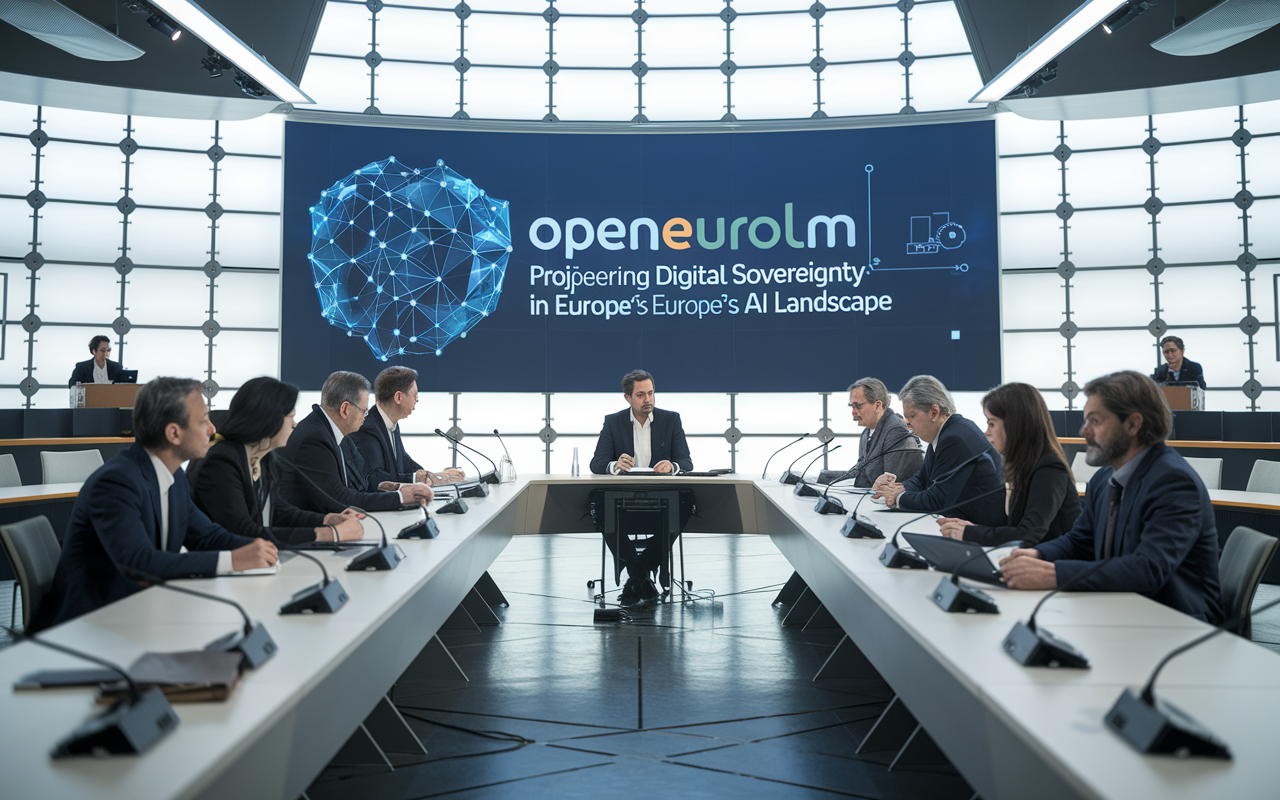Open Source LLMs: A New Era for Europe's Digital Sovereignty 🎉🇪🇺
The landscape of artificial intelligence in Europe is set to undergo a significant transformation with the launch of the OpenEuroLLM project! 🚀 As it aligns with Europe's digital sovereignty roadmap, this initiative aims to develop a series of "truly" open-source large language models (LLMs) covering all official EU languages.
What's in Store? 🌍
The OpenEuroLLM project represents a collaborative effort among approximately 20 organizations, co-led by Jan Hajič, a computational linguist, and Peter Sarlin, the CEO of the AI lab Silo AI. Their goal? To create LLMs that resonate with the linguistic diversity of Europe while keeping data within its borders.
This isn't just a tech upgrade; it's about sovereignty! The European Union has recognized that having control over its digital infrastructure is crucial, leading to ambitious projects aimed at boosting local resources, including a whopping €37.4 million investment specifically for building these models. 💰💻
The Challenge Ahead 🚧
While the ambition is commendable, the road to achieving it is fraught with challenges. The sheer number of parties involved raises concerns about whether a “sprawling consortia of 20+ organizations” can maintain a focused approach akin to smaller, agile firms like Mistral AI. As Anastasia Stasenko pointed out, success might come more readily from smaller, dedicated AI teams that can fully own their projects.
Arrival of OpenEuroLLM's First Models 👀
The project's first iterations are expected by mid-2026, but the complexities of collaboration and data quality remain issues that need to be navigated carefully. Hajič acknowledges that while they have a beneficial foundation from earlier projects, building AI is not straightforward; it involves substantial groundwork to ensure multilingual effectiveness and data quality. 🌐
An Open Source Future? 🔓
Defining what "open source" truly means in the realm of AI continues to spark debate. Although the aim is full transparency with datasets and models, there may be some limitations due to the nature of data usage and EU copyright laws. The commitment to work within these frameworks while striving for quality will be critical to the project's reputation and efficacy.
Collaborate, Don’t Compete! 🤝
Interestingly, there are other projects with similar missions, such as EuroLLM, which highlights the risk of duplicating efforts. Andre Martins, a key figure behind EuroLLM, has expressed hopes for collaboration among these communities rather than reinventing the wheel. This collaborative spirit will be crucial as both projects move forward, leveraging unique resources and expertise to push European AI to new heights.
Looking Ahead 🌈
OpenEuroLLM is more than a technical endeavor; it embodies a broader vision for digital sovereignty in Europe. Ultimately, while it aspires to create one of the top AI models, even a well-functioning alternative rooted in European frameworks will mark a significant triumph.
In the end, this is about more than tech – it’s about shaping a digital future that honors Europe’s diverse cultures and languages while maintaining sovereignty in the AI revolution. 🇪🇺💪
Feel free to share your thoughts on this ambitious journey towards sovereignty in AI!👇
[#AI #DigitalSovereignty]

More Stories
Meta’s AR Ambitions and AI Safety: Insights from the Equity Podcast
Insight Partners Data Breach: A Wake-Up Call for Cybersecurity Awareness
Lovable’s Ascendancy: Anton Osika at TechCrunch Disrupt 2025